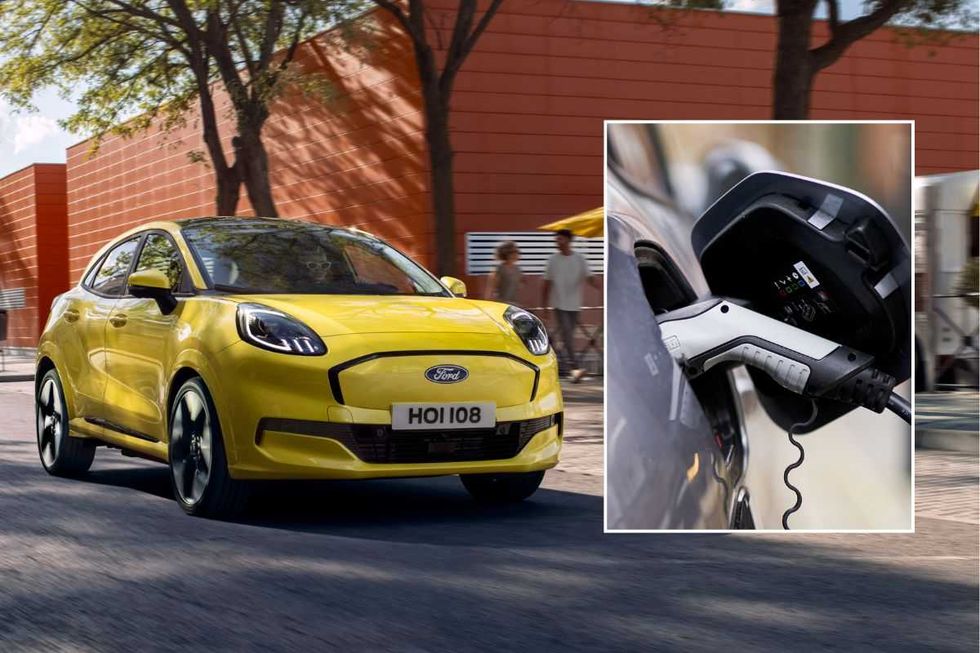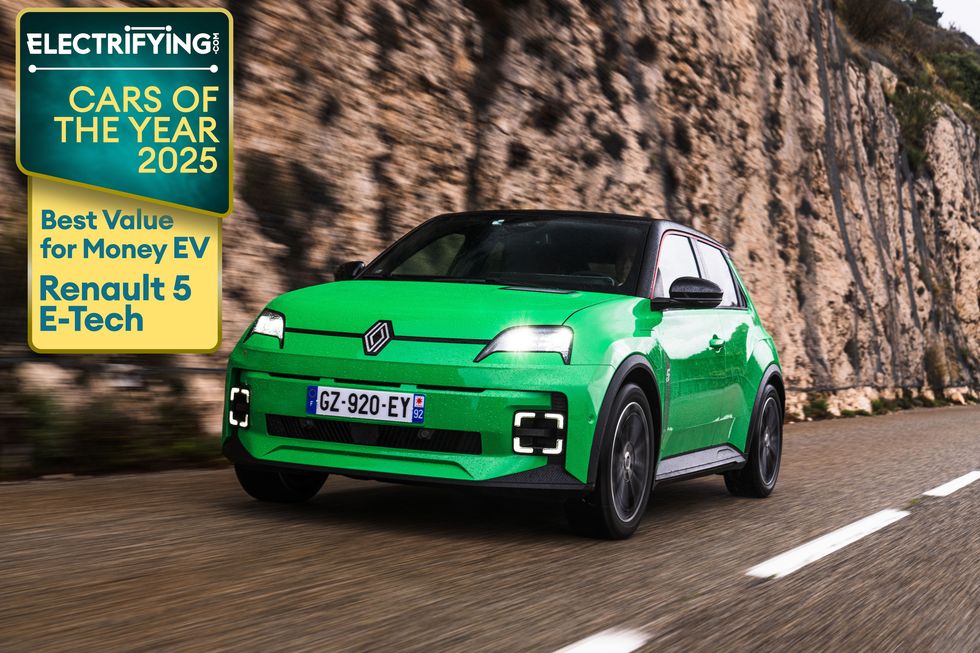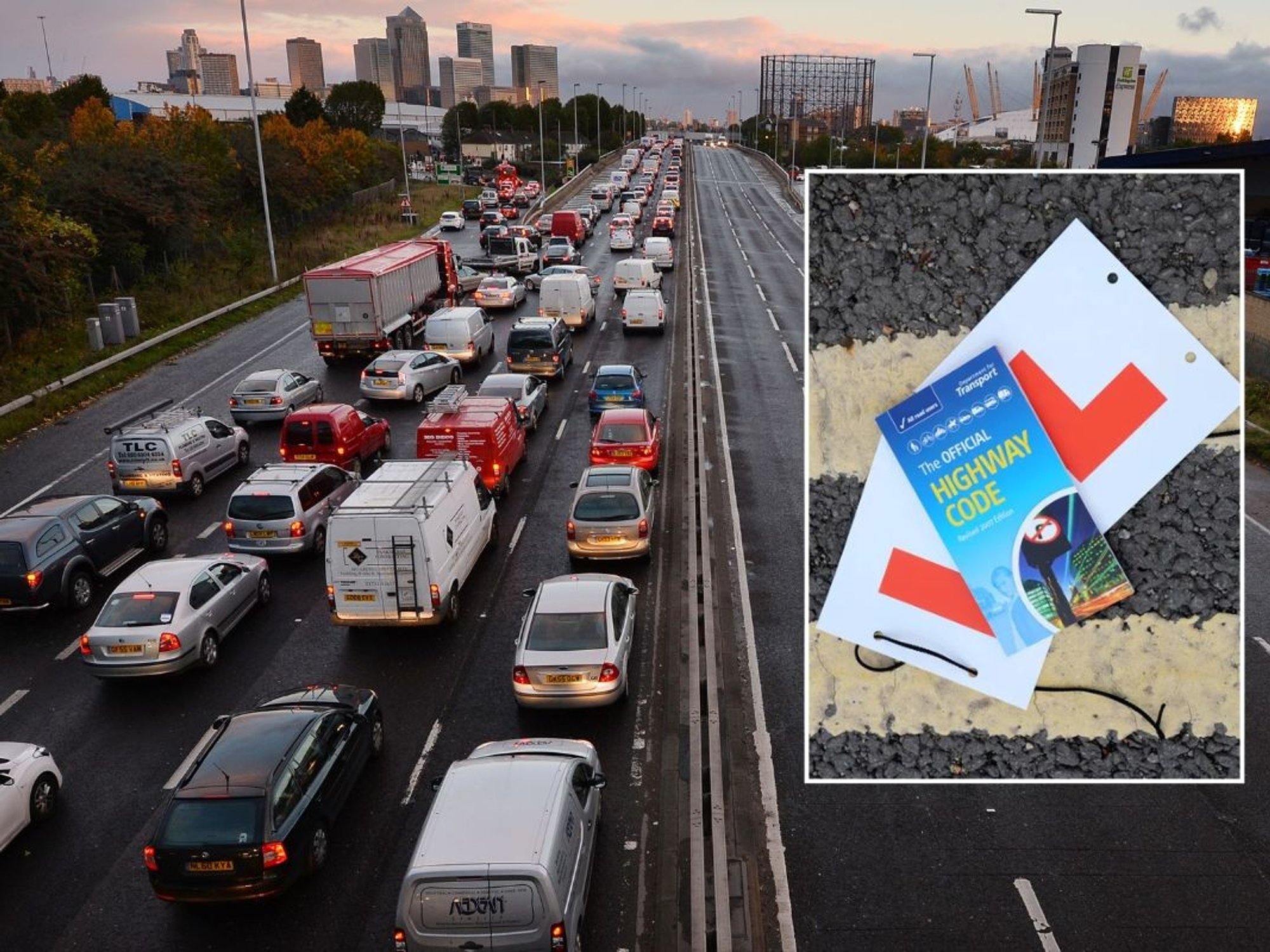Millions of drivers set for electric car switch 'faster' if myths are debunked as prices plummet

'If the Government wants to meet its 2030 ambitions, it must improve the availability and experience of public charging'
Don't Miss
Most Read
New research has found that more drivers would be willing to switch to electric vehicles if myths around the technology were proven false.
Around 71 per cent of non-electric vehicle owners still have range anxiety, despite many electric vehicles having more than 300 miles of battery range.
The study, from char.gy and YouGov, highlights that more than 750 electric vehicles with a suitable range are expected to hit the market by the end of the decade.
Even some of the more affordable models on the market have a battery range of more than 250 miles, which is more than suitable for the average motorist.
TRENDING
Stories
Videos
Your Say
According to the Electric Vehicle Database, the average range of a zero emission car is currently 235 miles.
Given the average mileage per year is around 7,000 miles, many electric vehicles would be suitable for everyday journeys.
The report, "What Everyone Should Know About EVs", also found that simple, fact-based sentences contributed to a 12-point increase in drivers considering electric vehicles as their next vehicle.
Phrases, which included "EV batteries last 10-15 years", helped motorists quickly dispel any myths they previously held about electric motoring.

Busting myths about electric vehicles could encourage millions of drivers to switch to an EV
|FORD/PA
John Lewis, CEO of char.gy, said: "EVs aren't a distant future anymore: they're here, they're affordable, and they're rapidly outpacing combustion cars on performance and value.
"But the data shows the biggest barrier isn't the vehicles, it's the stories we tell about them. If we can debunk the myths and meet people where they are, especially at the kerbside, we'll accelerate this transition faster and fairer."
Purchase price also remains a sticking point for motorists, with many Britons complaining that they are still significantly more expensive than petrol, diesel and even hybrid counterparts.
The average price of an electric vehicle has fallen by more than 20 per cent since the start of 2023, with forecasts showing that they could drop by another 28 per cent by 2030.
LATEST DEVELOPMENTS:
Drivers can now make use of Labour's £650million Electric Car Grant, which helps motorists slash the price of an EV by £1,500 or £3,750.
More than 30 models are currently available through the Electric Car Grant, although only two EVs are eligible for the larger grant, namely the Ford Puma Gen-E and the Ford E-Tourneo Courier.
Other brands which are not yet part of the EV grant have also unveiled their own incentive schemes, including a like-for-like discount, free maintenance and other benefits.
Almost two-thirds of Britons said they would consider switching to an EV if charging was cheaper, while this rises to 78 per cent of those considering an EV in the short term.
 The Renault 5 E-Tech is one of the eligible models as part of the Government's Electric Car Grant | RENAULT
The Renault 5 E-Tech is one of the eligible models as part of the Government's Electric Car Grant | RENAULTGinny Buckley, founder and CEO of Electrifying.com, highlighted research that a lack of access to off-street parking would put them off from switching.
"This is why it's crucial we get on-street charging right - to ensure nobody is left behind on Britain's electric journey," she added.
There are more than 85,000 chargers around the UK at around 120,000 different locations, with experts hoping that 300,000 chargers will be installed by the end of the decade.
Sue Davies, Which? Head of Consumer Protection Policy, said: "If the Government wants to meet its 2030 ambitions, it must improve the availability and experience of public charging to give drivers the confidence to switch."








